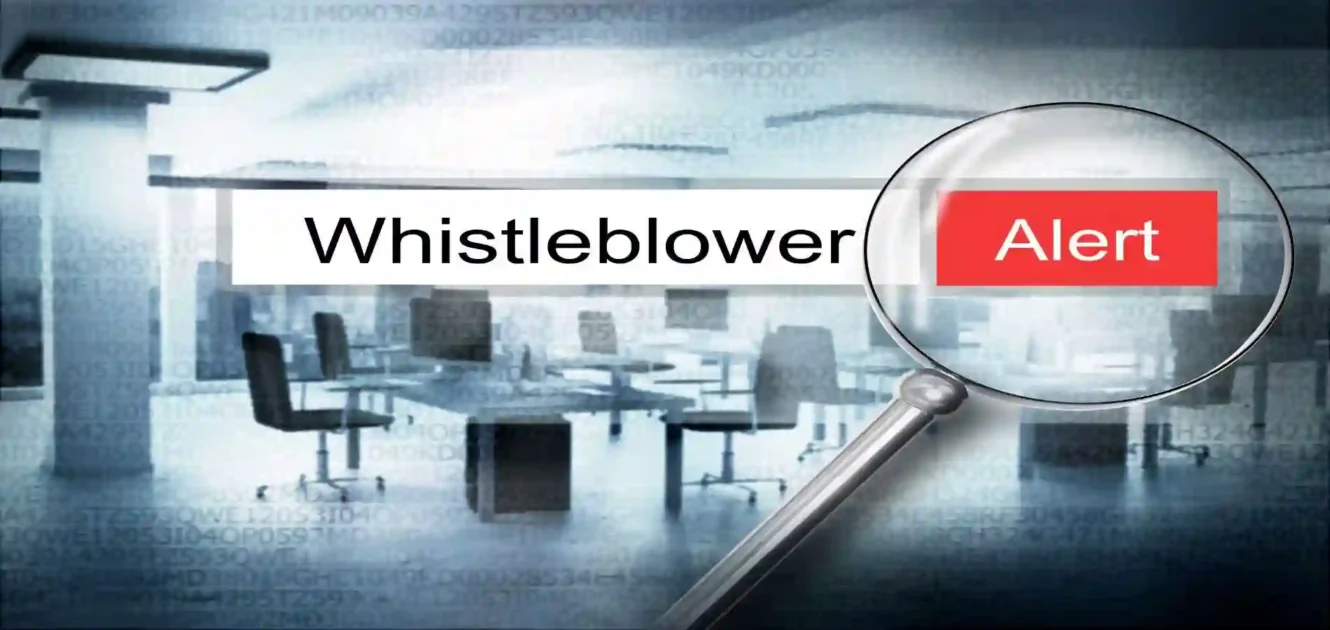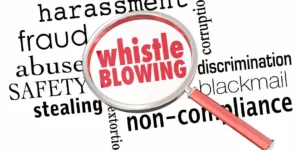
Introduction to Blowing the Whistle
As a Nashville Whistleblower Lawyer, I am very cognizant of the fact that Whistleblowers have helped recover billions of dollars in fraud cases since 1986. The SEC alone has awarded almost $700 million to more than 100 people who spoke up. Our experience shows how a Nashville whistleblower lawyer can transform a case from a missed chance into justice served.
The numbers tell a compelling story. The SEC received nearly 7,000 whistleblower tips in 2020, showing a 31% jump from previous years. We know the challenges these cases bring as experienced whistleblower lawyers in Nashville. The courage to step forward deserves recognition and support. Thanks to the Dodd-Frank Act, whistleblowers can now file cases anonymously. This protection lets us fight for your rights while keeping your identity safe. In this article, we will address recent Nashville whistleblower settlements, whistleblower protections and whistleblower awards.
Recent Nashville Whistleblower Settlements
Nashville’s whistleblower cases have led to major recoveries. To cite an instance, Friendship Healthcare Services paid $6.5 million to settle allegations of billing TennCare, Medicare, and TRICARE for ineligible services. A former nurse filed the case that exposed forged signatures and incomplete paperwork.
HCA faced heavy penalties after whistleblowers exposed Medicare fraud. The company paid $745 million in civil penalties, and one key tipster got $25 million for exposing fraudulent management fee arrangements. HCA later agreed to pay an extra $95 million to settle criminal charges.
Mount Zion Baptist Church settled allegations of misusing Paycheck Protection Program funds. A former employee who blew the whistle received $10,569.66 from the settlement.
These cases show how Nashville’s whistleblower attorneys get results. Whistleblowers can receive 10% to 30% of recovered funds as compensation. Whistleblowers nationwide earned $265 million in relator share payments in 2019.
These settlements highlight whistleblowers’ crucial role in keeping organizations accountable. The qui tam provisions of the False Claims Act let people with insider knowledge file actions for the United States. This teamwork between alert citizens and skilled Nashville whistleblower lawyers protects public funds and ensures justice wins.
Confidentiality measures
We make protecting whistleblower identities our highest priority. Some laws let you submit anonymously where only your attorney knows who you are. But total anonymity isn’t always possible – courts and defendants might need basic case information.
To keep things confidential:
- Don’t discuss concerns with supervisors before talking to legal counsel
- Stay away from media contact – it won’t protect your identity much
- Work closely with your attorney to learn specific confidentiality rules
- Follow strict “under seal” requirements during government investigations
Your chances of success improve when you cooperate fully with government investigations. The government might step in to lead prosecution, but staying active through your legal team often leads to better results.
Note that each whistleblower case brings its own challenges. Nashville qui tam lawyers help handle complex filing requirements and protect your identity. We help whistleblowers direct this complex process through careful preparation and following legal procedures.

Protection Against Employer Retaliation
Nashville whistleblowers who file whistleblower lawsuits need reliable protection under state and federal laws when they expose wrongdoing. Legal action against fraudulent practices requires a clear understanding of these safeguards. If you are considering blowing the whistle, call Nashville whistleblower lawyer Timothy L. Miles today for a free and confidential case evaluation.
Legal safeguards
Tennessee law strictly prohibits employers from firing workers who refuse to participate in illegal activities or report unlawful conduct. The state’s Public Protection Act shields employees who:
- Report violations of criminal or civil codes
- Refuse to break state or federal regulations
- Alert others about public health and safety threats
- Testify in investigations or legal proceedings
Tennessee courts have expanded these protections with the public policy exception that prevents discharge against clear public interests. Employers cannot demote, suspend, reassign, or discriminate against whistleblowers in evaluations, promotions, or workplace conditions.
Tennessee Code gives state employees extra protection. Supervisors or contractors cannot push for discharge, demotion, or disciplinary actions against workers who report:
- Violations of state/federal laws
- Misuse of public resources
- Public safety threats

Emergency legal actions
Nashville whistleblower lawyers can take quick legal action against immediate retaliation for filing a Nashville whistleblower lawsuit. The law allows emergency interventions through:
- Temporary Restraining Orders
- Stop retaliatory actions
- Keep employment status
- Protect workplace access
- Preliminary Injunctions
- Restore job positions
- Preserve evidence
- Protect benefits
Courts may order these remedies for successful retaliation claims:
- Full reinstatement with back wages
- Restored benefits and seniority rights
- Payment of reasonable attorney fees
- Compensation for actual damages
Quick action matters in pursuing these protections. Whistleblowers must file retaliation complaints within specific deadlines:
- 1 year for general whistleblower claims
- 180 days for discrimination-related complaints
- 30 days for occupational safety concerns
The Office of Inspector General conducts full investigations of retaliation claims. A recent Nashville case saw the Metropolitan Development and Housing Agency repay lost wages and restore position after retaliating against a whistleblower.
State Plans must have whistleblower protection policies that match or exceed federal standards. Nashville whistleblowers can exercise their rights without fear of professional risks. Legal counsel should be contacted right away after experiencing retaliation to preserve claims and secure available protections.

Whistleblower Compensation and Awards
Whistleblowers who expose wrongdoing and file Whistleblower lawsuits in Nashville can earn substantial monetary rewards. Federal programs reward brave individuals with generous compensation when they step forward to fight for justice.
Percentage ranges
The Department of Justice rewards whistleblowers through its three-year Pilot Program. You can get up to 30% of the first $100 million in net proceeds forfeited, plus 5% for amounts between $100 million and $500 million.
Each program has its own reward structure:
- False Claims Act cases: 15-25% with government intervention, 25-30% without it
- Securities and Exchange Commission: 10-30% of collected sanctions
- Commodity Futures Trading Commission: 10-30% when recoveries exceed $1 million
- Internal Revenue Service: 15-30% of proceeds collected
Your final percentage depends on the quality of information you provide and how well you work with investigators. The SEC made history in 2023 by giving its largest-ever payment of $279 million to someone who chose to stay anonymous.
Tax considerations
Your whistleblower award counts as taxable income. The IRS sends a Form 1099-MISC showing the full amount, even if attorneys handle the funds. Here’s what you need to know about taxes:
- Federal income tax applies to the whole award
- State taxes change based on where you live
- Awards over $10,000 face 24% withholding
- You can deduct legal fees above-the-line since 2004
Smart tax planning makes a big difference. Some people move to states without income tax like Florida, Texas, or Tennessee before getting their awards. Tax professionals can help you understand:
- Estimated tax payment needs
- State-specific tax rules
- Deductions and credits you can claim
- Structured settlement choices
The CFTC’s whistleblower program has awarded over $42 million across 12 cases recently. About 42% of CFTC enforcement cases now involve whistleblower help.
Nashville qui tam lawyers help you get the highest possible compensation in a Nashville whistleblower lawsuit while following tax rules. Learning about these reward structures helps you make better decisions about reporting fraud.

Final Thoughts on Nashville Whistleblower Lawsuits
Nashville whistleblowers need reliable protection under state and federal laws when they expose wrongdoing. Legal action against fraudulent practices requires a clear understanding of these safeguards.
Whistleblower cases serve as powerful tools that expose fraud and protect public interests. Our experience with Nashville whistleblower cases shows how dedicated legal support makes a significant difference in outcomes.
Successful whistleblower claims just need proper preparation, complete documentation and strict compliance with legal procedures. Nashville qui tam lawyers guide clients through this complex process and ensure reliable protection from retaliation.
Large settlements and awards – ranging from 10% to 30% of recovered funds – showcase whistleblower actions’ importance and society’s dedication to fighting fraud. Speaking up against wrongdoing helps maintain accountability and protects taxpayer resources, though it can be challenging.
Whistleblowers should know their rights, collect proper evidence, and find qualified legal representation before taking action. Our team stands ready to review potential cases and help brave individuals navigate each step of their whistleblower process.
Frequently Asked Questions
What legal protections do whistleblowers have?
Whistleblowers in Nashville are protected by both federal and state laws. The False Claims Act provides strong safeguards against retaliation, including:
- Reinstatement to your position if terminated
- Double back pay plus interest
- Compensation for special damages (e.g. emotional distress)
- Attorney’s fees and costs
Tennessee state law offers additional protections for public and private sector employees who report violations of law or refuse to participate in illegal activities.
How do I report fraud or misconduct?
The reporting process typically involves these steps:
- Gather evidence of the wrongdoing
- Consult with an experienced whistleblower attorney
- File a confidential disclosure statement with the government
- Cooperate with any government investigation
- Potentially file a lawsuit if the government declines to intervene
Are there financial rewards for whistleblowers?
Yes, successful whistleblowers can receive significant financial rewards. Under the False Claims Act, whistleblowers may be entitled to 15-30% of the government’s recovery. In cases involving major fraud, these rewards can amount to millions of dollars.
However, it’s important to note that financial gain should not be the primary motivation for reporting wrongdoing. The process can be lengthy and there’s no guarantee of a reward.
What are some common misconceptions about whistleblowing?
Many people have misconceptions about whistleblowing, including:
- Myth: Whistleblowers are disloyal troublemakers.
- Reality: Whistleblowers often act out of a strong sense of ethics and desire to protect the public interest.
- Myth: You need absolute proof of wrongdoing to be a whistleblower.
- Reality: While evidence is important, you don’t need ironclad proof. Reasonable suspicion based on your observations can be sufficient to initiate an investigation.
- Myth: Whistleblowing always leads to job loss.
- Reality: Strong legal protections exist to prevent retaliation, including job loss. Many whistleblowers continue in their positions or find new opportunities.
How is my confidentiality protected?
Confidentiality is a top priority in whistleblower cases. Here’s how it’s maintained:
- Initial complaints are filed under seal, keeping your identity secret from the defendant
- Your attorney is bound by attorney-client privilege
- Government investigators are trained to protect whistleblower identities
- Courts can impose sanctions for revealing a whistleblower’s identity
While anonymity cannot be guaranteed indefinitely, especially if a case goes to trial, every effort is made to protect your privacy throughout the process.
What are the risks of retaliation and how are they mitigated?
While retaliation is illegal, it remains a concern for many whistleblowers. Common forms of retaliation include:
- Termination or demotion
- Hostile work environment
- Blacklisting within an industry
To mitigate these risks:
- Document any suspected retaliation
- Report retaliation immediately to your attorney
- Understand that strong legal remedies exist, including reinstatement and financial compensation
Remember, retaliation itself is illegal and can strengthen your case.
What’s the typical timeline for a whistleblower lawsuit?
Whistleblower lawsuits often follow this general timeline:
- Initial consultation and filing: 1-3 months
- Government investigation: 1-3 years (can be longer in complex cases)
- Government intervention decision: After investigation
- Litigation (if necessary): 2-4 years
- Settlement or trial: Varies widely
While the process can be lengthy, it’s designed to thoroughly investigate claims and protect all parties’ rights. Your attorney will guide you through each stage and keep you informed of progress.
Contact Nashville Whistleblower Lawyer Timothy L. Miles Today if You Are Thinking of Blowing the Whistle
If you have knowledge of fraud against or by the federal government, contact Nashville whistleblower lawyer Timothy L. Miles who can guide you through the whistleblower process and explain your whistleblower protections. The consultation is free and confidential. Just complete the form below to get started or call (855) Tim-M-Law or tmiles@timmileslaw.com. Ask a Nashville Whistleblower lawyer you could be entitled to a significant whistleblower award.
Timothy L. Miles, Esq.
Law Offices of Timothy L. Miles
Tapestry at Brentwood Town Center
300 Centerview Dr. #247
Mailbox #1091
Brentwood,TN 37027
Phone: (855) Tim-MLaw (855-846-6529)
Email: tmiles@timmileslaw.com
Website: www.classactionlawyertn.com





